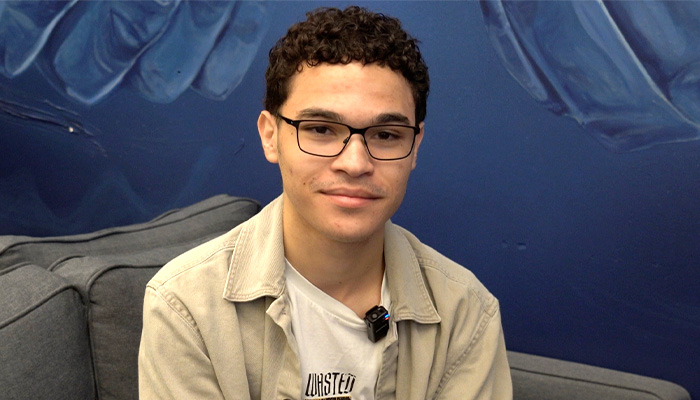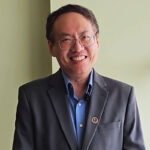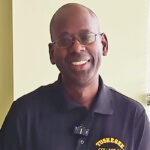For Matthew Little, a senior computer science major at Delaware State University and winner of RITA’s first Student Pitch Competition, joining the Research Institute for Tactical Autonomy (RITA) has been more than just an academic opportunity. It has been an introduction to a community that values curiosity, collaboration, and mentorship. As he reflects on his early experiences, Matthew shares how RITA has shaped his perspective and goals for the future.
Q: Tell us a little about yourself.
My name is Matthew Little. I’m a senior at Delaware State University, and my major is computer science. Some experiences I’ve had with RITA so far are that it’s a very welcoming experience. I’m pretty new, I just recently got hired. But even then, [when] I presented my project, everyone gave me advice. It really made me feel like I wasn’t just part of a team; I was part of a family. I really look forward to putting my best foot forward and making a name for myself. Maybe even attending grad school at one of these schools because they’re just so inviting.
Q: How did you first hear about the RITA opportunity?
I heard about the opportunity from my professor, Dr. Boukari. I was in one of her classes, and she noticed I wasn’t paying attention. I told her I already knew the topics we were covering, and she said, “Well, if you really do understand all this, I might have a position for you in the future.” She walked me through the process of signing paperwork and all the technical stuff.
Q: What’s the most interesting or exciting thing you’ve experienced so far at RITA?
Definitely the level of the projects. At RITA, everyone is passionate. People come from different backgrounds, from electrical engineering, computer science, psychology to computer engineering, and everyone’s working on something meaningful.
It’s great that we can come together and share ideas, like “Hey, this could revolutionize this technology or piece of equipment.” Getting feedback from so many experienced people, even if it’s constructive criticism, is amazing.
Q: Who has been a mentor or role model for you during this experience?
Dr. Boukari has definitely been a mentor for me. I also met some new people from Howard, and they were really encouraging. I told them I was nervous because I didn’t think I could afford grad school, and they said the UARC could help support me all the way to my Ph.D. That really spoke to me because I haven’t had many people go that far out of their way for me. If that’s the norm at RITA, I know I’ll fit right in.
Q: What skills have you gained since joining RITA?
Mostly presentation skills. I haven’t been here long enough to develop a ton of new technical skills yet, but I’ve learned how to better express my ideas as I’m thinking them through.
There’s someone here who’s really good at federated learning, which is a topic I’m very interested in. I haven’t gotten to talk to him yet, but I’m excited to learn from him soon.
Q: How has collaborating with others influenced how you work?
It’s been amazing. Group projects in the past haven’t always gone well for me, so I was a little hesitant at first. But this has been totally different. I’ve been surrounded by people talking about things I don’t even understand yet and that excites me because I love learning new things. Sometimes I’ll hear, “Oh, you’re going to work with this person,” and it turns out they’re one of the best in the world. It’s surreal. I’m just grateful to be part of that environment.
Q: What’s your dream job?
I realized I really love research. I want to be able to say I discovered something — that I left my mark. At the end of the day, I want to be remembered as an innovator. It’d be cool if one day people said, “Oh yeah, this was made by Matthew Little.” That would mean a lot.
Q: How do you think this experience will help you reach that goal?
Just being in this environment helps. The people, the projects — even the energy. I came on this [Annual Meeting] trip thinking I’d go to meetings, go back to the hotel, and sleep. Instead, I stayed up almost all night thinking of an idea to pitch. Even though it wasn’t perfect, I wanted to get out there and share it, to trade ideas with others. That kind of drive only happens in a place like this.
Q: What advice would you give to another student interested in RITA?
Come with ideas. Come with an open mind. And come ready to learn. Even if you’re at the top of your game, it’s always good to be around people who can challenge you — people who can sharpen your steel.





